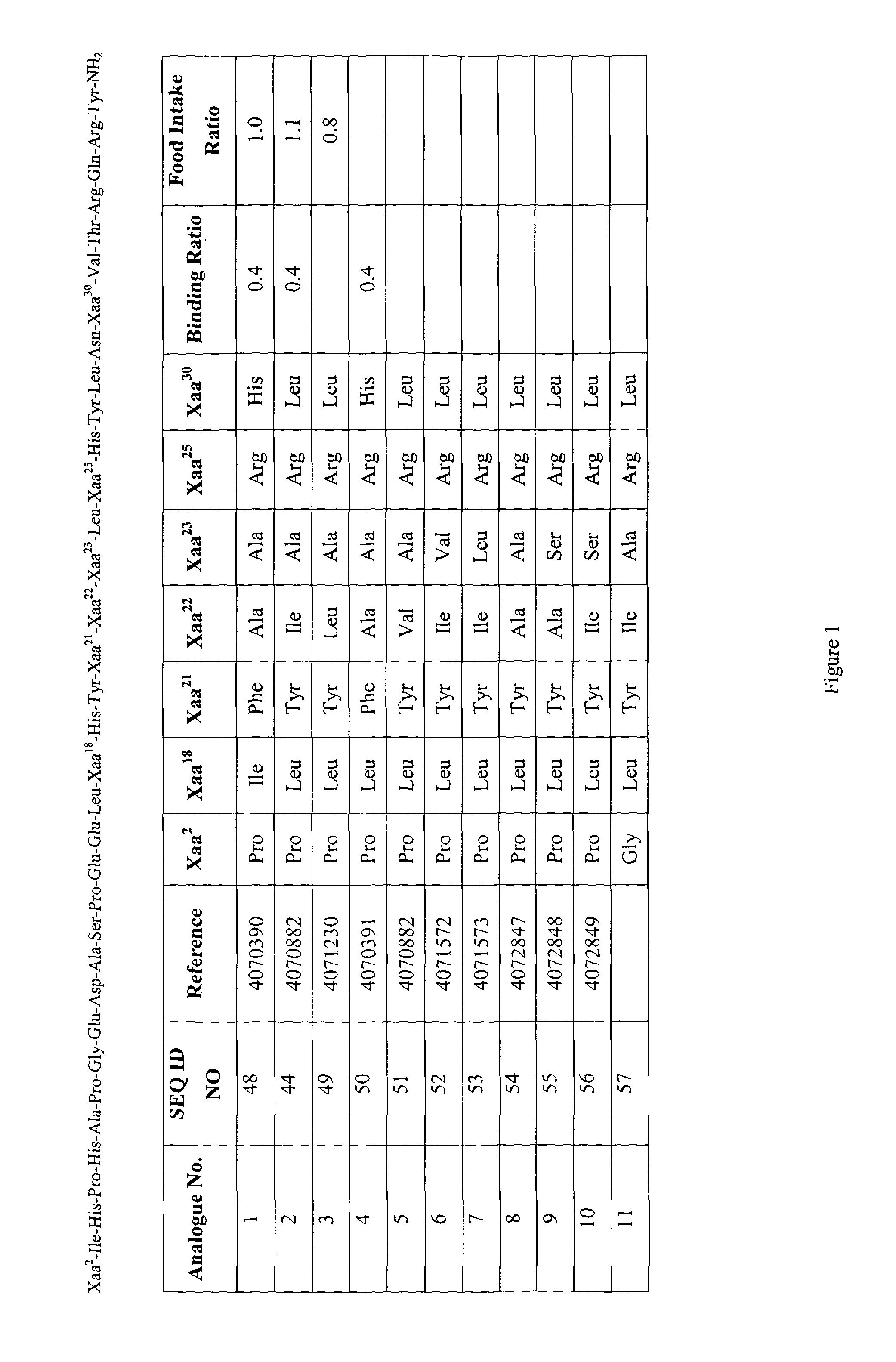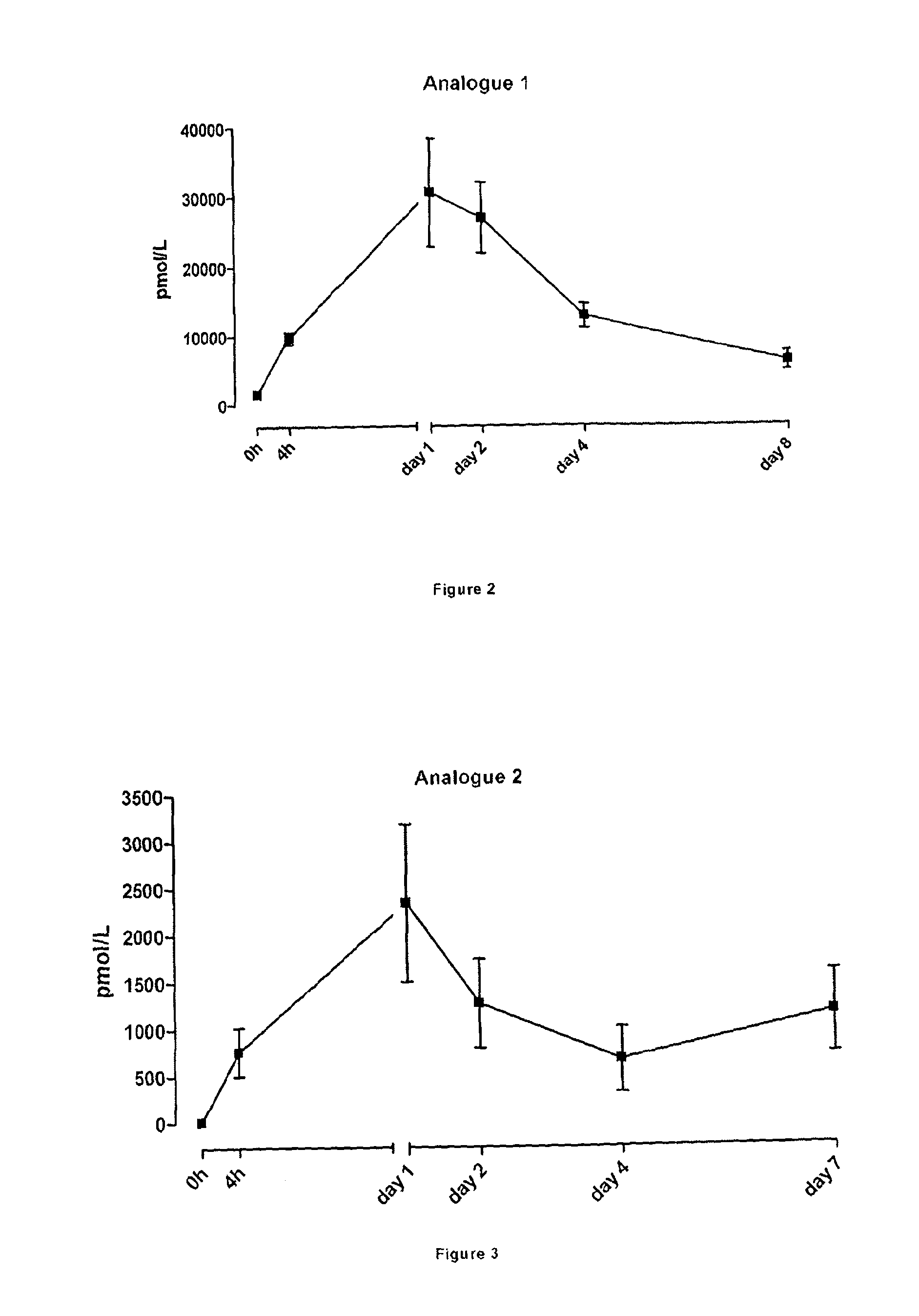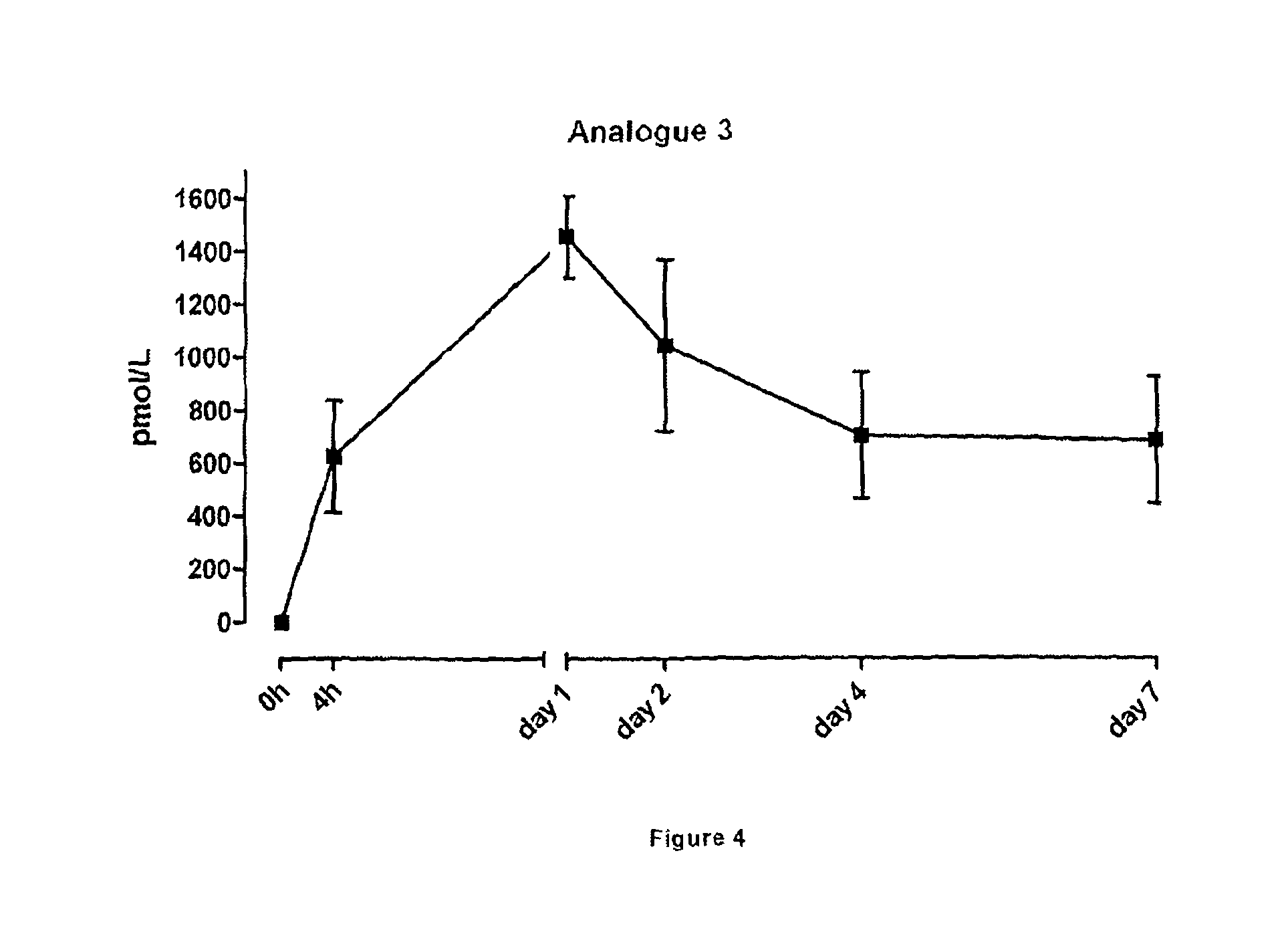Compounds and their effects on feeding behaviour
a compound and feeding behaviour technology, applied in the field of obesity, can solve the problems of complex and multi-factorial obesity, large percentage of overweight or obese children in the united states, and association with obesity, and achieve the effects of reducing appetite, reducing food intake, and reducing calorie intak
- Summary
- Abstract
- Description
- Claims
- Application Information
AI Technical Summary
Benefits of technology
Problems solved by technology
Method used
Image
Examples
example 1
Binding Studies
[0167]Membrane preparation of HEK 293 cells overexpressing the human Y2 receptor (NPYR200000, Missouri S&T cDNA resource centre) were isolated by osmotic lysis and differential centrifugation as described by Morgan et al (Morgan D G, Lambert P D, Smith D M, Wilding J P H & Bloom S R. J. Reduced NPY induced feeding in diabetic but not steroid treated rats: lack of evidence for changes in receptor number or affinity. Neuroendocrinol 1996. 8 283-290). Receptor binding assays were completed as described by Druce et al (Druce M R, Minnion J S, Field B C, Patel S R, Shillito J C, Tilby M, Beale K E, Murphy K G, Ghatei M A & Bloom S R. Investigation of structure-activity relationships of oxyntomodulin (oxm) using oxm analogues. 2009 Endocrinology 150(4) 712-22) except the buffer used was 0.02M HEPES pH 7.4, 5 mM CaCl2, 1 mM MgCl2, 1% bovine serum albumin, 0.1 mM diprotin A, 0.2 mM PMSF, 10 μM phosphoramidon, 125I-PYY1-36 as the radiolabel and the human Y2 receptor used.
Acute...
example 2
In Vivo Pharmacokinetic Studies
Materials and Methods
[0170]Male Wistar rats were injected subcutaneously with analogues 1, 2 or 3 having the sequences given in FIG. 1.
[0171]Each injection was of 1 mg peptide per rat at a concentration of 50 mg / ml of peptide and of 1 zinc ion (as ZnCl2) per peptide molecule.
[0172]Rats were decapitated and trunk blood collected at 4 h, 1 day, 2 days, 4 days and 7 or 8 days. Blood was also collected from 2 rats not injected with peptide in order to ascertain basal (endogenous) PYY levels.
[0173]Plasma peptide levels were measured by a general PYY RIA using the same analogue as a standard as that which was being measured in each case.
Results
[0174]Results are presented in FIGS. 2, 3 and 4. Despite endogenous PYY having a half life of only several minutes, the level of circulating analogue remains elevated at for several days.
example 3
[0175]DIO male C57BL / 6 mice having a mean starting weight of 38 g were injected daily with either vehicle (n=12) or analogue 2 (30 nmol / kg (days 1 to 6), followed by 60 nmol / kg) (n=10). The peptide was administered with zinc ions in the form of zinc chloride, and the formulation contained 1 zinc ion per molecule of peptide. Food intake and body weight were measured daily.
Results
[0176]The results of the feeding studies are shown in FIGS. 5 and 6. FIG. 5 shows cumulative food intake (in grams) for mice receiving either vehicle or analogue 2. FIG. 5 shows that cumulative food intake was lower for mice receiving a compound of the invention than for mice receiving vehicle. FIG. 6 shows the percent change in body weight for mice receiving analogue 2 as compared with mice receiving vehicle. FIG. 6 shows that mice receiving a compound of the invention had lower body weight (˜4% lower) than mice receiving vehicle.
PUM
| Property | Measurement | Unit |
|---|---|---|
| waist circumference | aaaaa | aaaaa |
| waist circumference | aaaaa | aaaaa |
| pH | aaaaa | aaaaa |
Abstract
Description
Claims
Application Information
 Login to View More
Login to View More - R&D
- Intellectual Property
- Life Sciences
- Materials
- Tech Scout
- Unparalleled Data Quality
- Higher Quality Content
- 60% Fewer Hallucinations
Browse by: Latest US Patents, China's latest patents, Technical Efficacy Thesaurus, Application Domain, Technology Topic, Popular Technical Reports.
© 2025 PatSnap. All rights reserved.Legal|Privacy policy|Modern Slavery Act Transparency Statement|Sitemap|About US| Contact US: help@patsnap.com



